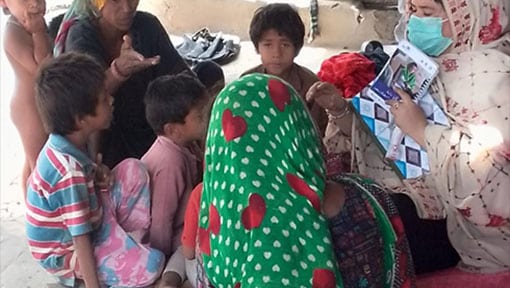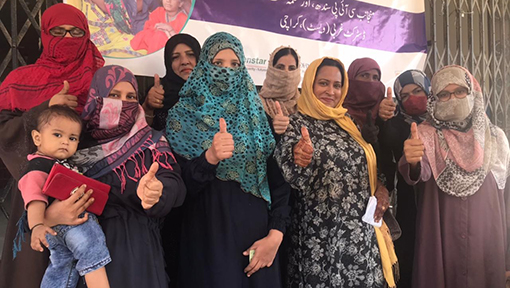Globalization and Health Publishes TCI’s “Key Factors to Facilitate Locally Driven Family Planning Programming” Study
Contributors: Lily Merritt, Lisa Mwaikambo and Ruwaida Salem
 Traditional global health programming is often driven by the wants of the major donors and governments of high-income countries, with not enough attention paid to the local country’s ownership in the development process. TCI’s “business unusual” model aims to change that dynamic and centers genuine partnership with local governments in the sustainable scale up of evidence-based family planning and adolescent and youth reproductive health interventions.
Traditional global health programming is often driven by the wants of the major donors and governments of high-income countries, with not enough attention paid to the local country’s ownership in the development process. TCI’s “business unusual” model aims to change that dynamic and centers genuine partnership with local governments in the sustainable scale up of evidence-based family planning and adolescent and youth reproductive health interventions.
Results from a new study of key factors for effective implementation and scale up based on TCI’s experience point to five key themes that facilitate implementation, lead to scale up, and show positive, early signs of sustainability.
- Strengthening Local Capacity. Through coaching, a positive feedback loop exposes the cities to the tangible benefits of their efforts.
- Shifting Mindsets Toward Local Ownership. Local government officials and community members are motivated to contribute more of their own resources when they feel a sense of ownership.
- Improving Government Health Systems. Institutionalization within existing government structures leads to diffusion of the interventions beyond areas that received the initial investment.
- Improving Data Demand and Use. Increased accuracy and timeliness of data improves the planning and targeting of FP services to those most in need.
- Enhancing Coordination of Partners. Family planning can be integrated into other health programs at the government level and the public and private sector can work towards the same goal through referrals.
The study, published July 3, 2021, in the journal Globalization and Health, was based on key factors that local government and community stakeholders in urban areas of Benin, Burkina Faso, Cote d’Ivoire, Kenya, India, Nigeria, Niger, Senegal, Tanzania and Uganda deemed were “most significant” to affecting change. TCI coaches these stakeholders on how to rapidly scale up evidence-based approaches as they themselves design and implement programs that best meet their local needs. The qualitative data for this study drew on the Most Significant Change (MSC) technique, which is a participatory monitoring and evaluation approach to evaluate social-change initiatives operating within complex community systems (Davies & Dar 2005).
The findings from this study can influence how programs are designed for sustainability and scale at a time when traditional donor funding is decreasing, and local governments are being called upon for ownership and increased domestic budgeting for health programs.
Fullscreen Mode






